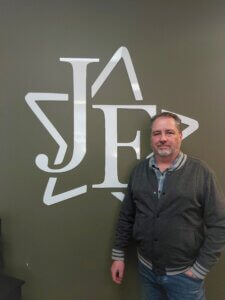Author: Peter Cantelon, Executive Director
A lot of wise, probably somewhat life-worn folks over the years have said a variation of the following sentiment:
“Knowledge is a burden.”
In the non-profit sector this can be felt when attempting to navigate the often rough seas on ethics and morality, particularly in governance and decision making.
Now it is not simply the purview of the non-profit sector to attempt to make moral and ethical decisions, it is the responsibility of all people and organizations, non-profit or otherwise. However when it comes to the non-profit sector it becomes heightened I think because many organizations here have founding visions and missions that stem intrinsically from a moral or ethical position.
On our website we state “Jubilee Fund, launched in 2000, is Manitoba’s only charitable ethical investment fund. We are here to help Manitoba non-profits working to reduce the impact of poverty.”
Ethics is woven into who we are and how we were founded.
Back to the opening quote about knowledge being a burden. When it comes to making decisions within a moral and ethical framework it is not as simple as one might think and the more we come to know the more challenging the decision making can get.
First of all whose morality are we talking about? Different cultures, belief systems, and even eras express morality (that which is good) differently. If one was a Christian non-profit in 1897 Toronto, Canada one might have what we might deem a simpler paradigm within which to operate and make ethical choices.
Today, as a 21st century Canadian non-profit many of us find ourselves in a world where values, ethics, morality, cultures and beliefs are held in equal standing. This, in itself, is an expression of morality. I think it is a good one.
As a financial services organization we find ourselves confronted with questions such as where should we invest/bank? Should we consider their climate viewpoint and whether they are invested in fossil fuels? What about conflict and weapons? How about treatment of Indigenous peoples or people from the LGBTQ2S+ communities? What about equal treatment of different faiths (and non-faiths)? What happens when a faith perspective conflicts with another’s’?
What all of this means is that one person or groups’ moral or ethical framework may come into conflict with another’s within our own organization and we need ways to sensitively navigate this.
Having a strong set or organization values expressed in your vision and mission statements can help. Encoding your key values in a formal Values Statement can help as well. Communicating all of this to new board members prior to their election as well as to prospective employees prior to hiring makes things easier in this realm and can offer guidance.
The goal is to ensure that people who work for you and with you understand your values, and that they affect your decision making so that no one is surprised when you take certain stances (or not).
You are not asking people to shed their values in place of your organizations but you are asking them to allow you to work out those values in your decision-making processes.
A key thing to be wary of is that statements, processes, and paradigms are static things while morality and ethics, whether we like it or not, are shifting sands. If you do not regularly check and revisit your values against culture, aka the water in which you swim, you could find your organization increasingly isolated and in conflict inside and out.
Try to make sure your workspace is a safe space for staff and clients to ask ethical and values based questions. Typically this is an area forbidden but without discourse you could find yourself surprised by conflict and departures. It is also a good way to keep your pulse on shifting views.
The point is we all need to be keeping morality and ethics in the forefront of our vision and decision making via tools, transparency and discourse. It makes it far easier to carry the decision making load when you have these things.
